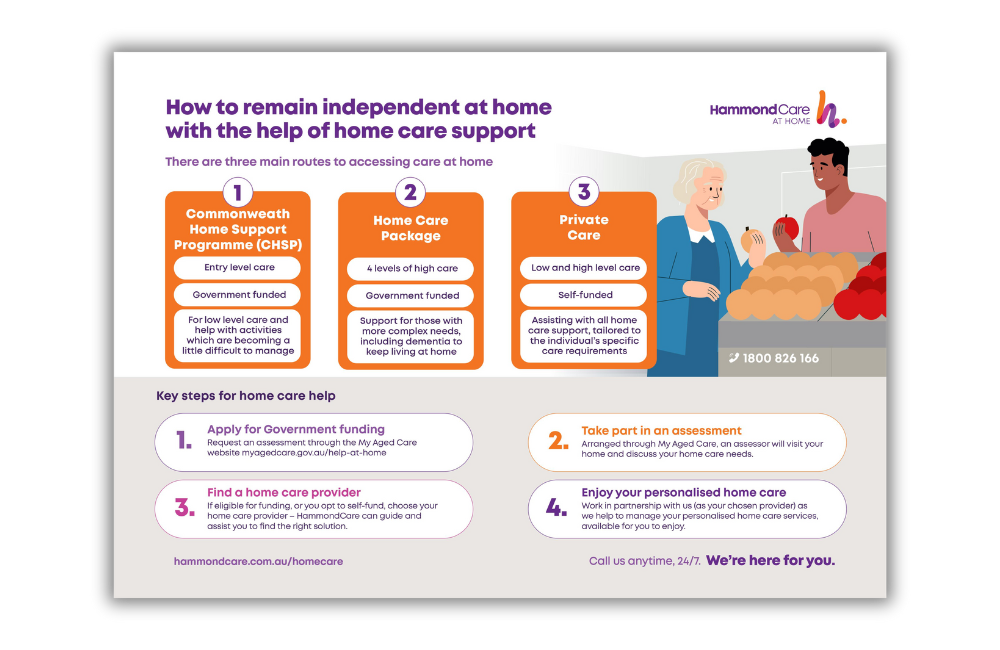How home care providers empower autonomy for people with disabilities
How home care providers empower autonomy for people with disabilities
Blog Article
All Regarding Home Treatment Solutions for People With Disabilities: NDIS Registered Support
Home care solutions under the NDIS play a critical function in sustaining individuals with handicaps. These services are developed to boost daily living with customized assistance, ranging from individual like movement support. Recognizing how to navigate these alternatives can be complex. This summary discovers the numerous elements of NDIS home treatment, from readily available services to the selection of service providers, highlighting crucial considerations for those seeking support. The journey toward empowered care begins below.
Comprehending the NDIS and Its Objective
The National Impairment Insurance Coverage Scheme (NDIS) acts as a transformative framework made to supply assistance and services for individuals with specials needs. Developed to boost the lifestyle and guarantee equitable accessibility to important resources, the NDIS encourages individuals by supplying customized strategies tailored to their distinct needs. It aims to foster self-reliance, allowing people to seek their personal goals and aspirations.Through a structured strategy, the NDIS allots financing for different supports, including education, work help, and neighborhood involvement. This all-encompassing system not just concentrates on immediate treatment but also stresses long-term developing results. By advertising option and control, the NDIS motivates participants to pick their recommended provider, assuring that care straightens with their worths and preferences. Ultimately, the NDIS stands for a considerable commitment to boosting the lives of people with specials needs, fostering inclusivity, and constructing a more encouraging culture.
Sorts Of Home Treatment Services Available
Numerous kinds of home treatment solutions satisfy people with disabilities, mostly focusing on personal treatment assistance and break treatment choices. Individual care help provides vital assistance with daily tasks, while reprieve care provides momentary alleviation for primary caregivers. Recognizing these services is crucial for ensuring the well-being of both people with handicaps and their families.
Personal Care Support
While steering life can provide difficulties for individuals with handicaps, personal care support uses essential support tailored to their unique needs. This kind of home treatment solution incorporates a series of activities made to advertise independence and improve top quality of life. Individual care assistants assist with day-to-day jobs such as bathing, clothing, brushing, and toileting, making sure people maintain personal hygiene and convenience. They may likewise assist with dish preparation, drug management, and flexibility support. By supplying customized treatment, these professionals equip people to involve even more totally in their social tasks and day-to-day routines. Overall, personal care aid plays a substantial duty in fostering dignity and autonomy for those with impairments, allowing them to flourish in their home setting.

Reprieve Care Options
Break care works as a necessary source for households and caretakers of individuals with impairments, supplying momentary remedy for the demands of everyday caregiving. This kind of solution can take different types, consisting of at home reprieve care, where trained professionals see the home to aid with treatment jobs. Additionally, households might decide for facility-based respite care, where people get treatment in a specialized atmosphere, permitting caretakers to pause. In addition, some companies offer emergency break solutions for unanticipated conditions. These choices not just help reduce caretaker stress and anxiety but additionally advertise the health of individuals with handicaps by supplying them new experiences and social interaction. On the whole, reprieve care plays a crucial duty in sustaining both caregivers and those they take care of.

Just How to Access NDIS Home Treatment Solutions
Accessing NDIS home treatment solutions entails comprehending the qualification requirements stated by the National Disability Insurance Coverage System. People should navigate a structured application procedure to protect the essential support tailored to their requirements. This area will certainly clarify both the eligibility requirements and the actions included in making an application for solutions.
Qualification Standards Discussed
To get NDIS home treatment solutions, people must fulfill details qualification requirements that evaluate their needs and conditions. Applicants need to be matured in between 7 and 65 years and have a significant and permanent impairment that influences their capability to execute everyday tasks. In addition, they need to be an Australian citizen, an irreversible resident, or hold a Protected Unique Classification Visa. The NDIS calls for evidence of the special needs, normally with medical assessments or reports. Moreover, people should show that they require assistance to take part in economic and social life. These requirements guarantee that solutions are guided towards those who truly need aid, advertising freedom and enhanced top quality of life for individuals with disabilities.
Application Process Actions
Can I Choose My Own Support Workers Through NDIS?
The specific asked whether they might choose their own support workers under the NDIS framework. Normally, participants have the adaptability to pick support employees, promoting individualized care that straightens with their details needs and preferences.
What Happens if My Requirements Change After Receiving Support?
If an individual's requirements adjustment after getting support, they need to interact these modifications to their company. Adjustments can be made to the treatment strategy, making a fantastic read certain that the support remains pertinent and effective for their scenarios.

Are There Restricts on The Amount Of Hours of Care I Can Obtain?
The individual asked about possible limitations on the variety of care hours obtained. Normally, such limitations may exist based on details policies or moneying arrangements, stressing the importance of examining standards and agreements regularly.
Can I Use NDIS Financing for Home Modifications?
The inquiry of utilizing funding for home alterations occurs regularly. Generally, individuals may utilize NDIS funding for needed adjustments to their homes, ensuring accessibility and safety, contingent upon conference specific eligibility requirements and guidelines.
Exactly how Do I Manage Issues Regarding My Home Treatment Services?
To address issues about home treatment solutions, people ought to initially document their problems. Then, they can communicate directly with their solution copyright, looking for resolution, or rise the issue to pertinent oversight bodies if necessary. Home treatment solutions under the NDIS play a crucial duty in sustaining people with disabilities. Various types of home care solutions provide to people with handicaps, largely concentrating on individual treatment support and break care options. support at home. Personal care assistance gives crucial assistance with everyday activities, while respite care supplies short-lived relief for key caretakers. Households may opt for facility-based reprieve treatment, where individuals obtain treatment in a specialized environment, permitting caretakers to take a break. How can family members properly handle the financial facets of home treatment services for people with impairments?
Report this page